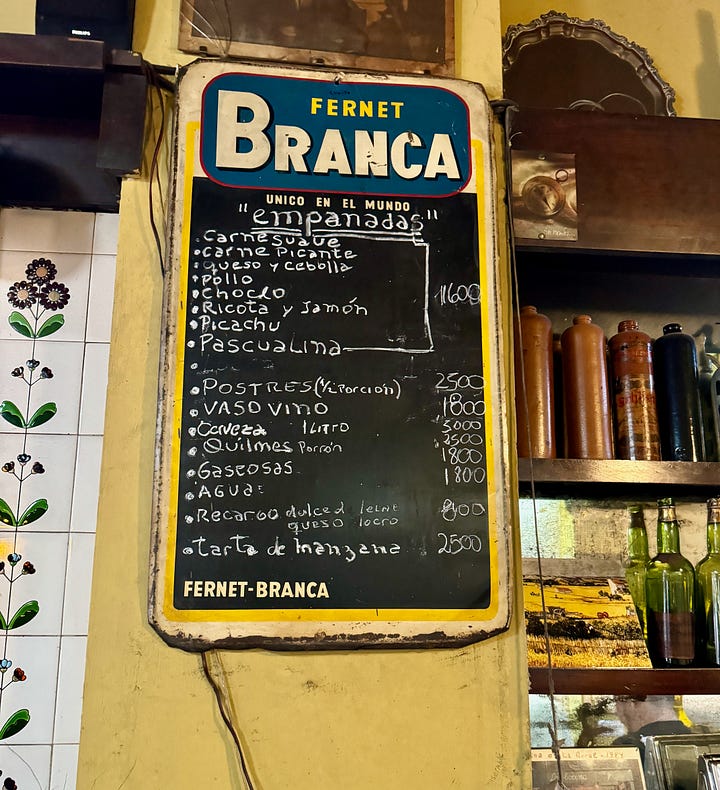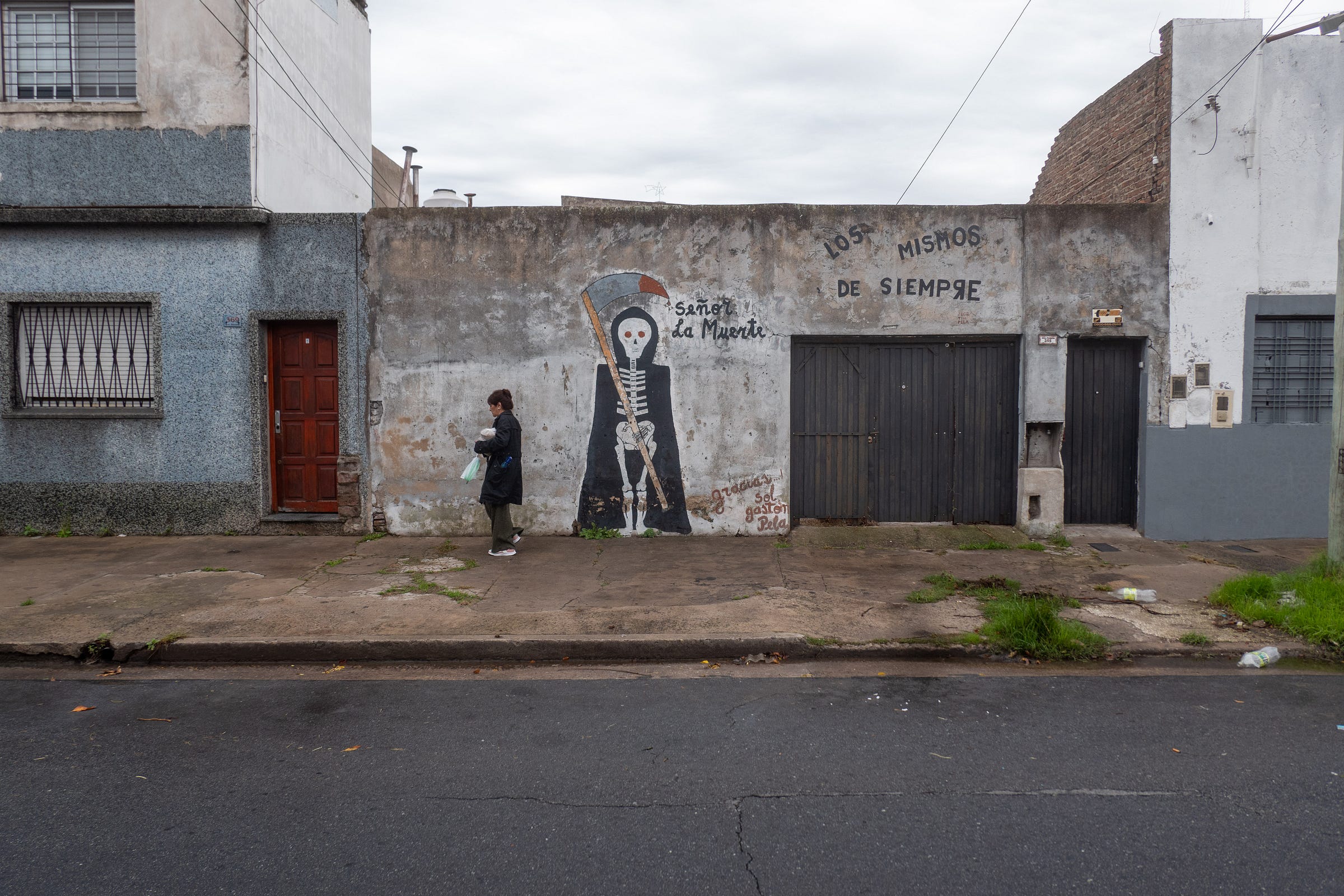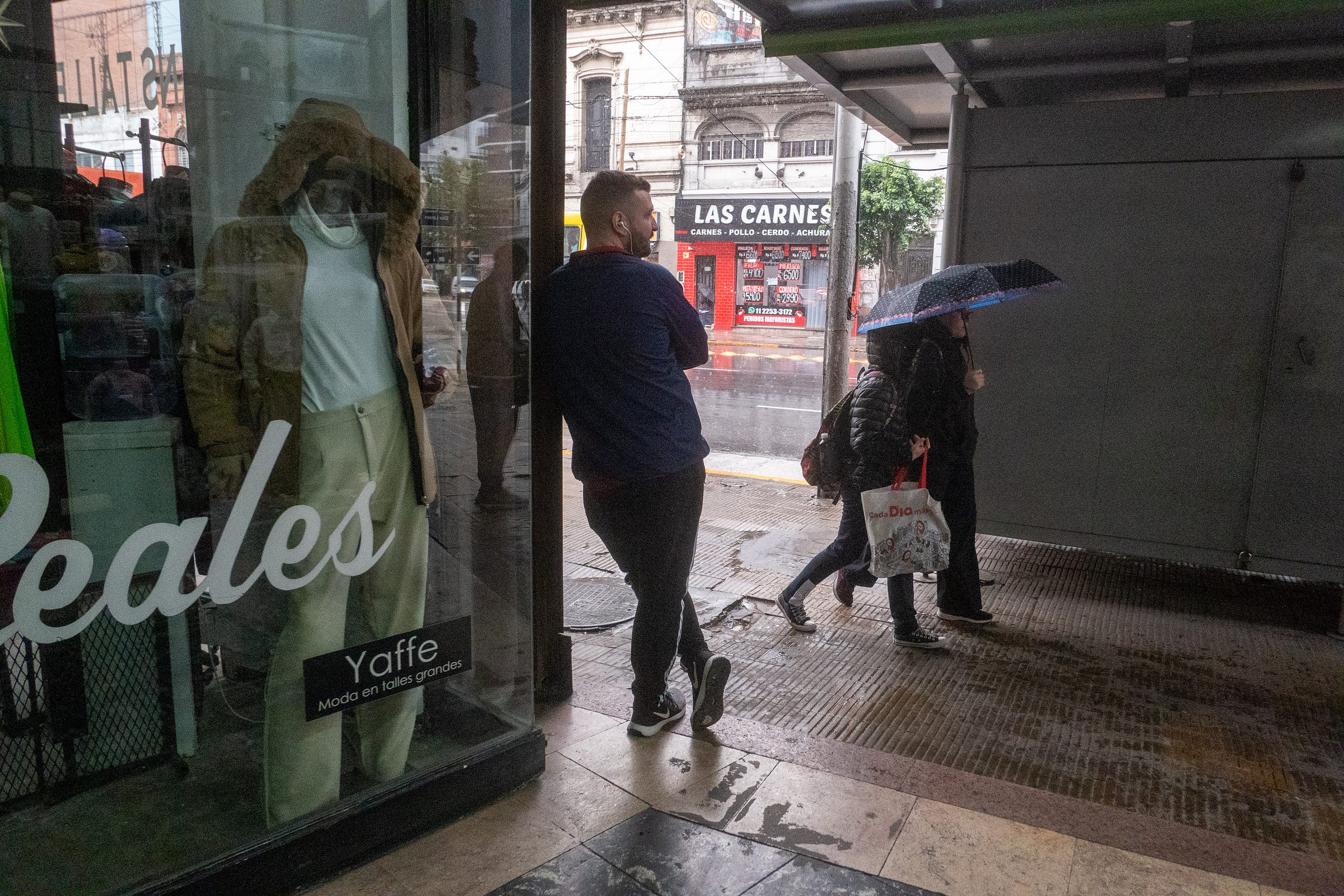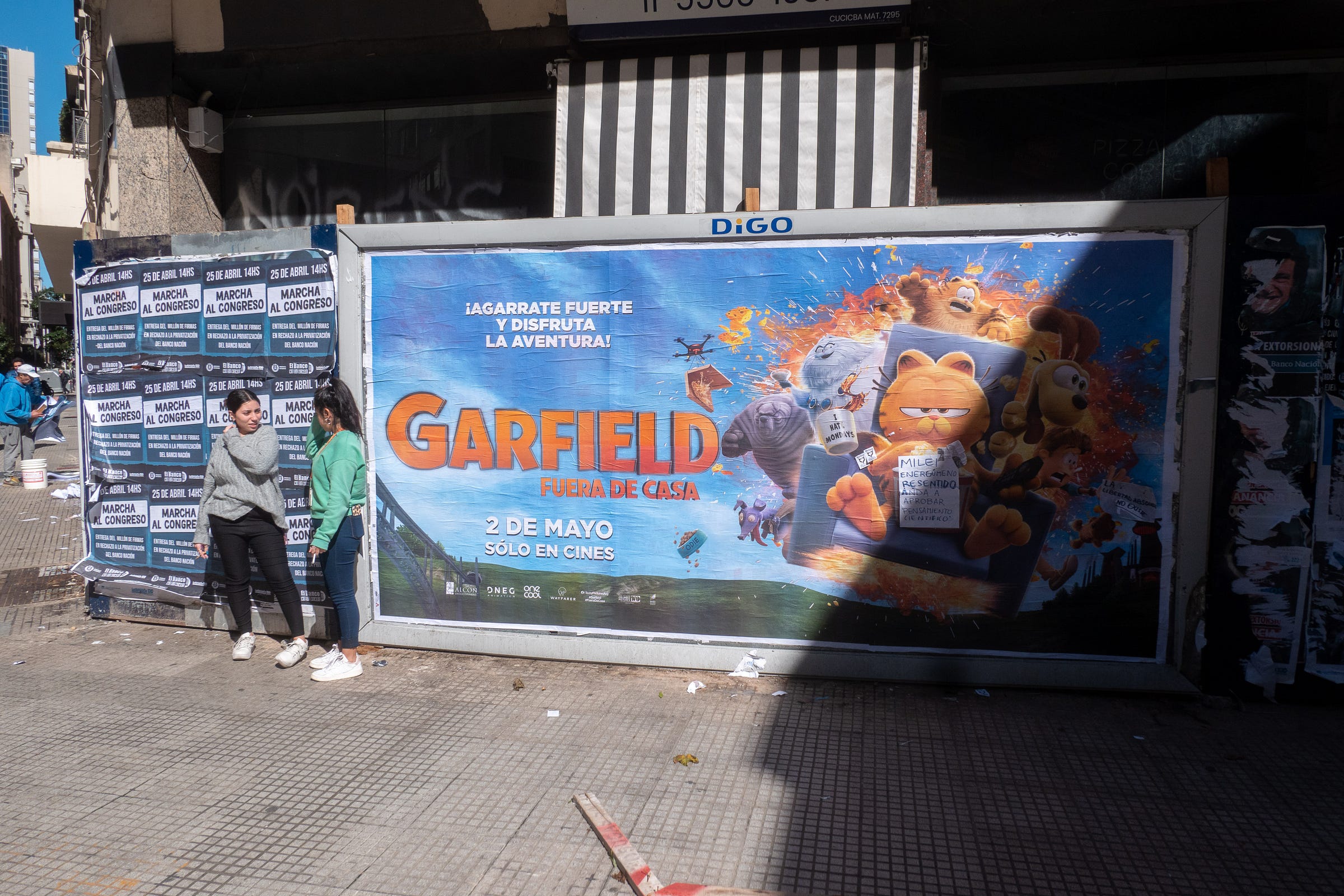Why I came to Buenos Aires
Or, thoughts from a cafe while it rains, and rains, and rains, and....
(I’ve been unable to walk much, or take many pictures, because of awful wet weather. So this piece is different from most of my posts, and hopefully I’ll soon get some days of sun so I can explore more to write a traditional piece next week.)
Buenos Aires is a city I know well enough that I’ve held off walking it until I wanted a more relaxing trip, without the logistical stresses from the unfamiliar. I knew where I’d stay (on the fringes of Recoleta), what time of year to go (our spring, their fall), and the route of my first few long walks.
I even knew what city bus to take from the airport to downtown, so while everyone around me post baggage claim scurried after forty dollar Ubers, I confidently went to the “25 Market,” bought a Sube card, and then walked to the Línea 8 bus, which would take me into downtown for only a quarter.
I landed on a high, fueled by my semi expertise and the lack of jet-lag, despite being at the tail end of a ten-hour flight. Flying to Buenos Aires, in the same time zone as New York, is surprisingly easy — get on a plane, sleep badly, wake up in a new town a little groggy, but not hallucinatory.
I was confident it would be an easy and insightful trip, one where I would build on my prior understanding, and then could quickly whip out an article explaining Argentina at a deeper level, both to myself and to my readers.
But sitting here in another cafe, hiding from another downpour, I realize I didn’t, and don’t understand Argentina. Not how I thought I had.
Part of that’s because there’s been awful weather since I’ve been here and I’ve not been able to walk much, but mostly it’s because my last trip to Argentina was over five years ago, and how I view the world has profoundly changed since then.
While I’ve been to Buenos Aires over ten times in my life, all except the last trip was when I was a banker focused on financial crises and distressed debt, something Argentina had and has a lot of.
Those old trips were very top down, with lots of looking at numbers, talking to highly credentialed people, and staying in fancy hotels, and very little going out in the streets, unless it was to grab a taxi to take me to the next expensive restaurant, or next important meeting. In my language, it was thin travel, but a very focused and refined thin travel.
So I’d come back to get a different perspective, and hopefully fuse what I learned about Argentina from that period — that it’s a fucked up place, and has almost always been a fucked up place — and what I wanted to learn from walking around watching and listening to people— which is why is it so fucked up and how does life goes on despite it being fucked up.
That hasn’t happened though, certainly not understanding how does life goes on, because for the last few days I’ve mostly sat in cafes, sipping cafe con leches, hungry because I’m avoiding anything too sugary (almost everything on the menu), getting more confused, not less.
I don’t usually write about politics and the history of a place, preferring to go in “cold” to a city and seeing it from the ground up, but I can’t do that with Buenos Aires. Twenty years of my life was focused on looking at Argentina from the top down. I know that past, warts and all, too well.
That top down picture isn’t pretty. Argentina, at a political and economic level, has been a basket case for over a hundred years1. Strong men, coups, military dictatorships, crazy populist politicians, inflation, defaults, more inflation, more defaults, and so on and so on, that’s left it in a constant state of tumult, with the few brief periods of stability haunted by the slow, steady, and now familiar run up to the precipice of another economic collapse. It’s as if Argentina is a chaos addict, unable to bask in the stability and smooth growth other countries count as normal.
That’s certainly the case now. Check out the inflation since I was last here five years ago. The cost of one empanada, at my favorite restuarant, has gone from 55 pesos to 1,600!


Making the whole thing more maddening is Argentina’s been gifted the perfect conditions. It’s got all the resources needed — bountiful and rich land, deep harbors, oil, minerals, a good climate — to construct a wealthy happy thriving nation.
Argentina, on paper, should be an economic super power, like it was in the early 1900s. While it might be a stretch to expect it to still be on par with the US2, it should at least be in the same ballpark, and certainly wealthier than Japan, Korea, or Germany, as it used to be. But it’s not even close, not in total wealth (GDP), or wealth per citizen.
Argentina is the infamous global laggard, the country that’s barely kept up while the rest of the world has zoomed ahead, and passed. Understanding the reason(s) for its anemic performance, and for its politic chaos, has spawned shelves and shelves of textbooks, grad student theses, and academic papers.
It is an economic and political theory debate I was immersed in for twenty years, and had a stake in getting right. Argentina’s problems were very profitable to my part of Wall Street, at least to some of us3.






